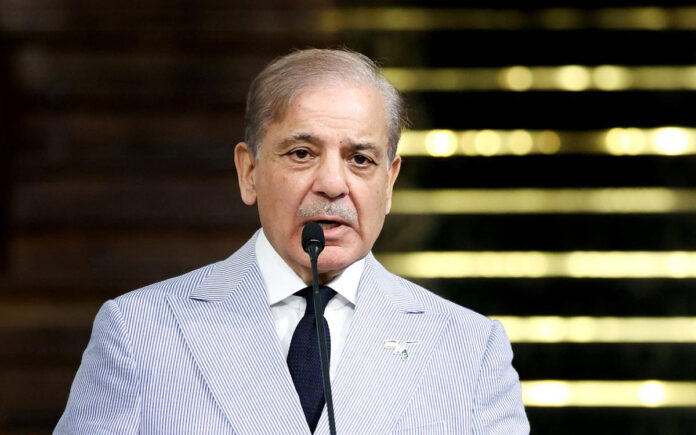Tehran: Pakistan’s Prime Minister Shehbaz Sharif has expressed a renewed willingness to engage in talks with India to address a range of longstanding bilateral issues, including the Kashmir dispute, water-sharing concerns, and trade relations. His remarks came during a joint press conference held with Iranian President Masoud Pezeshkian in Tehran.
Speaking at the conference, Sharif, as reported by Pakistani media outlet Dawn, emphasized Islamabad’s openness to dialogue. “We are ready to talk, for the sake of peace on water issues with our neighbour,” he stated, highlighting the potential for constructive discussions on trade and regional security. “We are ready to talk to promote trade and also, counter-terrorism…” he added.
Reiterating his commitment to peace, the Pakistani leader said, “We wanted peace, we want peace and we will work for peace in the region through talks, on the table, and resolve our outstanding issues.” He further stressed, “But if they accept my offer of peace, then we will show that we really want peace, seriously and sincerely.”
Sharif’s visit to Iran follows diplomatic engagements in Turkiye. He is also expected to travel to Tajikistan and Azerbaijan as part of his regional outreach.
During the same event, Iranian President Masoud Pezeshkian underscored Tehran’s support for peace between India and Pakistan. According to Iranian state media outlet IRNA, Pezeshkian advocated for sustained dialogue among regional powers to resolve disputes and maintain regional stability. He also called for a durable ceasefire between the two South Asian nuclear neighbors.
Also Read | Aleema Khan Delivers Imran’s Message: No Deal with Military or Foreign Powers
The backdrop to this diplomatic overture includes India’s suspension of the Indus Water Treaty following the Pahalgam terror attack, which claimed the lives of 26 civilians. In the aftermath, New Delhi initiated a series of measures against Islamabad, including halting the water-sharing agreement that has governed the use of the Indus River and its tributaries since 1960.
Indian External Affairs Minister S. Jaishankar previously affirmed that the treaty remains on hold due to Pakistan’s alleged support for cross-border terrorism. Ministry of External Affairs spokesperson Randhir Jaiswal also cited broader shifts in the region. “Now, as per CCS decision that I referred to of 23rd April, India will keep the treaty in abeyance until Pakistan credibly and irrevocably abjures its support for cross-border terrorism. Please also note that climate change, demographic shifts and technological changes have created new realities on ground as well,” Jaiswal stated.
Also Read | New Front in Old Rivalry: India and Pakistan Turn to Drones
In response to ongoing tensions, India had earlier imposed a sweeping ban on all direct and indirect imports and transit of goods originating from or exported by Pakistan, effectively freezing bilateral trade. This decision was formalized through a notification issued by the Ministry of Commerce and Industry.
As regional powers advocate for peace, Sharif’s remarks signal Islamabad’s intent to reset ties through dialogue—provided there is mutual willingness.



